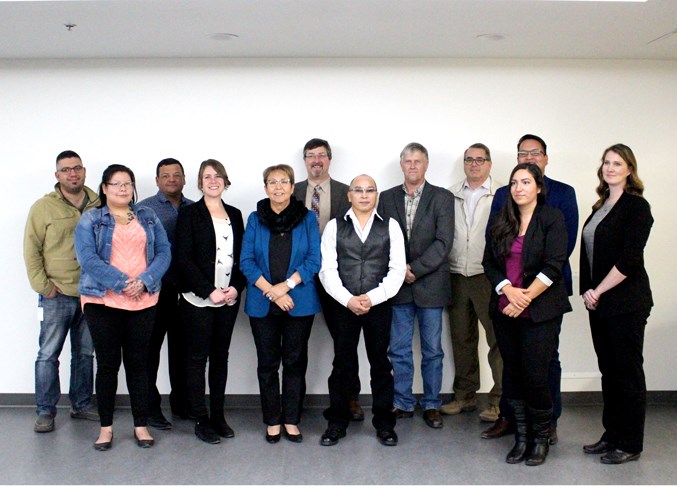First Nations students are learning how to protect the environment through a new waste management program.
The Green Employment Pilot Project being offered by the Tribal Chief Employment and Training Services Association (TCETSA), has participants training in the waste management field.
The Town of Bonnyville hosted a media release event on Tuesday, Oct. 2 to go over the program, where members from the groups involved had a chance to explain what's been happening since the course began.
The Town is among five employers partnering in the program by offering hands-on work experience to students. Other partners include County of St. Paul, Acden and Seven Lakes.
Greg Desjarlais, board chair for TCETSA, noted the importance of the program for participants, and how the knowledge gathered can help in First Nations communities.
"Some environmental training (in the program) focuses on reducing green house gases and emissions within the nations. A lot of it, we look back on the quality of the land and drinking sources... The program also focuses and provides people with the skills and knowledge necessary to work in a variety of levels and performing environmental waste diversion," he detailed.
The six-month program began back in June, and has an end date of Jan. 31, 2019.
There are nine participants from Frog Lake First Nation, Kehewin Cree Nation, Cold Lake First Nation, Whitefish First Nation, and Beaver Lake Cree Nation that were approached to join the pilot project.
"This program is the first of its kind that has this scope of holistic training, as well as employment opportunity in the field of solid waste," explained Amanda Doyle, director of lands and environment for the First Nations Technical Services Advisory Group Inc.
Those involved receive technical training on solid waste operations practices, hands-on learning, site tours, and experience from the employee partners involved.
Doyle said, "Participants are also working with elders, and receive training on how to engage community members to improve solid waste management on the community level."
James Jackson, a member of Whitefish First Nations, is enrolled in the program. He learned very early on that the skills he's learning will have lasting impacts on himself and his community.
"I started the program thinking that when I’m done I’m going to be able to work in a dump or a landfill," he explained.
One of the first places he visited as part of the program was the Evergreen Regional Landfill located in St. Paul, where they were experiencing a plug in the landfill that was causing some issues, releasing an odour as a result.
"It was at that moment, my mind flashed back to our site back home and I realized we had a big problem. That was a turning point for me. I made up my mind that I needed to learn all I can about the waste management and recycling, its impacts on the environment, and knew that what I was going to learn for the betterment of our community. I wanted to make a difference," he explained.
Jackson's realization highlights the importance of the program, and what it offers to First Nations people involved.
The Technical Services Advisory Group plans to expand the project outside of the pilot because of the positive response and impact it has had during such a short window.
"As far as the future of this program, we work across the province, and we’re looking at this as a model for how a lot of First Nations can engage in training, not only to better partner within their regions, but in the capacity for poor waste management and lower affected environmental management," Doyle expressed.
Minister of Indigenous Relations, Richard Freehan, said in a press release, "We're committed to ensuring Indigenous peoples are able to participate fully in Alberta's green economy. That's why we're proud to support the Tribal Chiefs Employment and Training Services Association and this waste management training program. Indigenous communities continue to benefit from programs like these, which creates job opportunities, reduce greenhouse gas emissions, and improve waste management and recycling practises."



